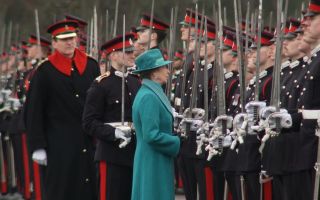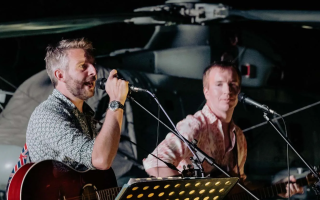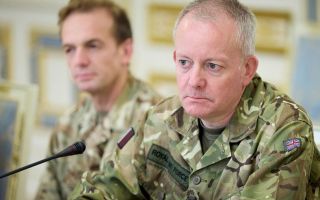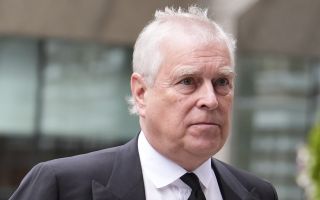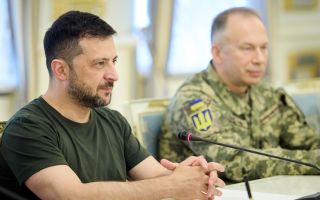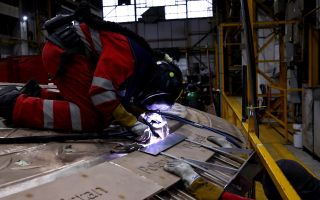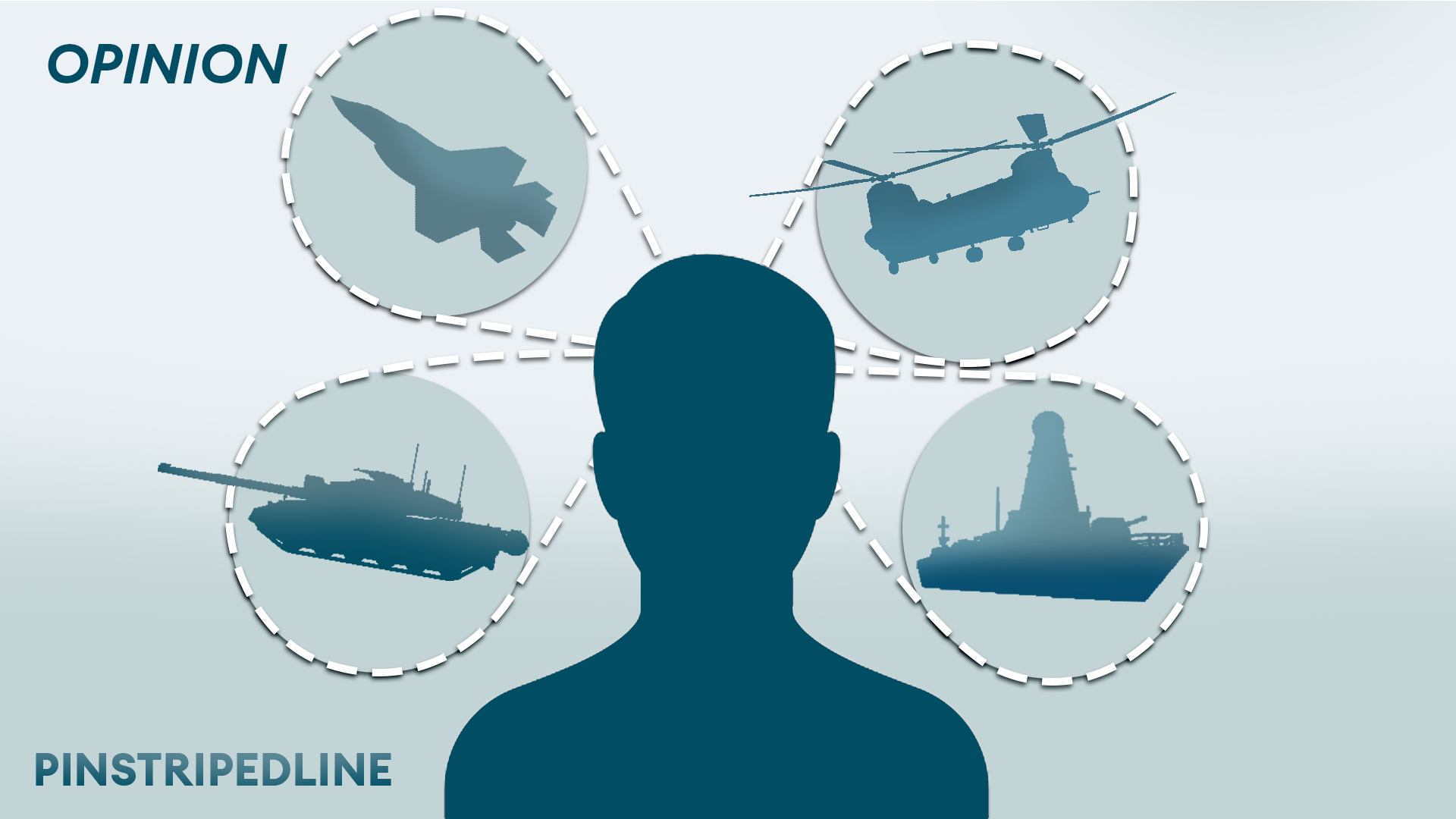
Appointing first RAF non-pilot to Chief of the Defence Staff post is not without controversy

Air Chief Marshal Sir Rich Knighton has been announced as the next Chief of the Defence Staff, taking over from Admiral Sir Tony Radakin in September.
This will make ACM Knighton the most senior serving officer in the British Armed Forces and principal military adviser to the Prime Minister on all defence matters.
He will also be the first RAF non-pilot or aircrew officer to hold the post, which is not without controversy.
Historically, all the service chiefs have come from careers spent on operational parts of the military, usually involving lots of direct command.
In the Royal Navy, this means warship command, while the RAF has usually appointed a pilot who has commanded an airbase.
In the Army, the "teeth arms" such as the infantry and cavalry, have usually produced senior leaders who have commanded at company, regimental, brigade and division level.
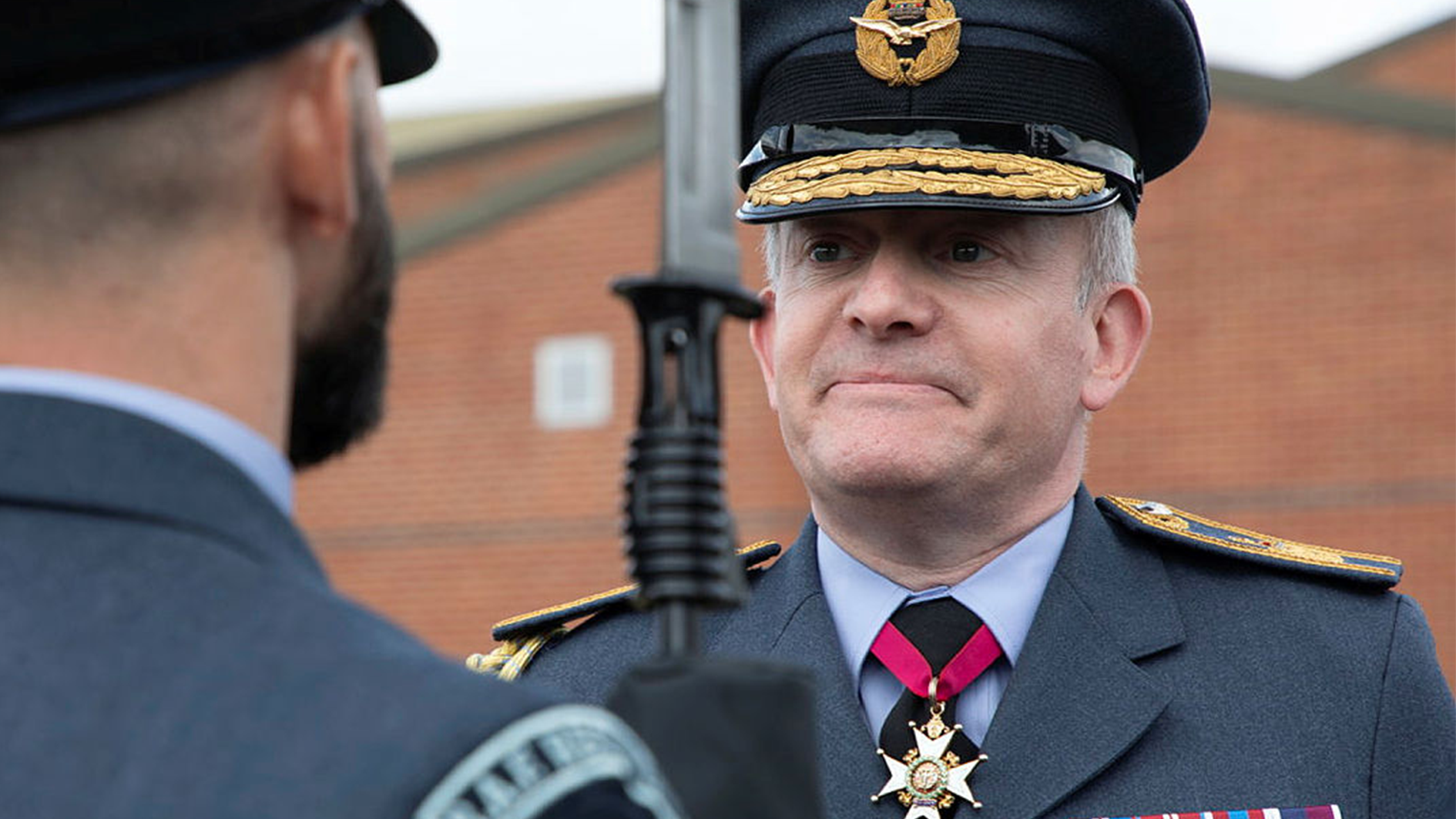
The system has produced people who have been direct leaders of others, rather than deep specialists in a certain field, such as intelligence or engineering.
The view is that leaders are needed to exhibit leadership and advise politicians on the cold hard realities of committing British troops to war.
ACM Sir Rich was the first Chief of the Air Staff in more than 100 years to not have been a pilot or wider aircrew.
He joined the RAF in 1988 as an engineer, specialising in maintaining airframes rather than flying them.
Later in his career, he specialised in senior posts linked to defence procurement, project management and finance – all vital skills to have in the complex world of defence budgets.
After he was appointed CAS, and now that he has been selected for CDS, there has been some suggestion that his background as an engineer makes him the wrong person for the job.
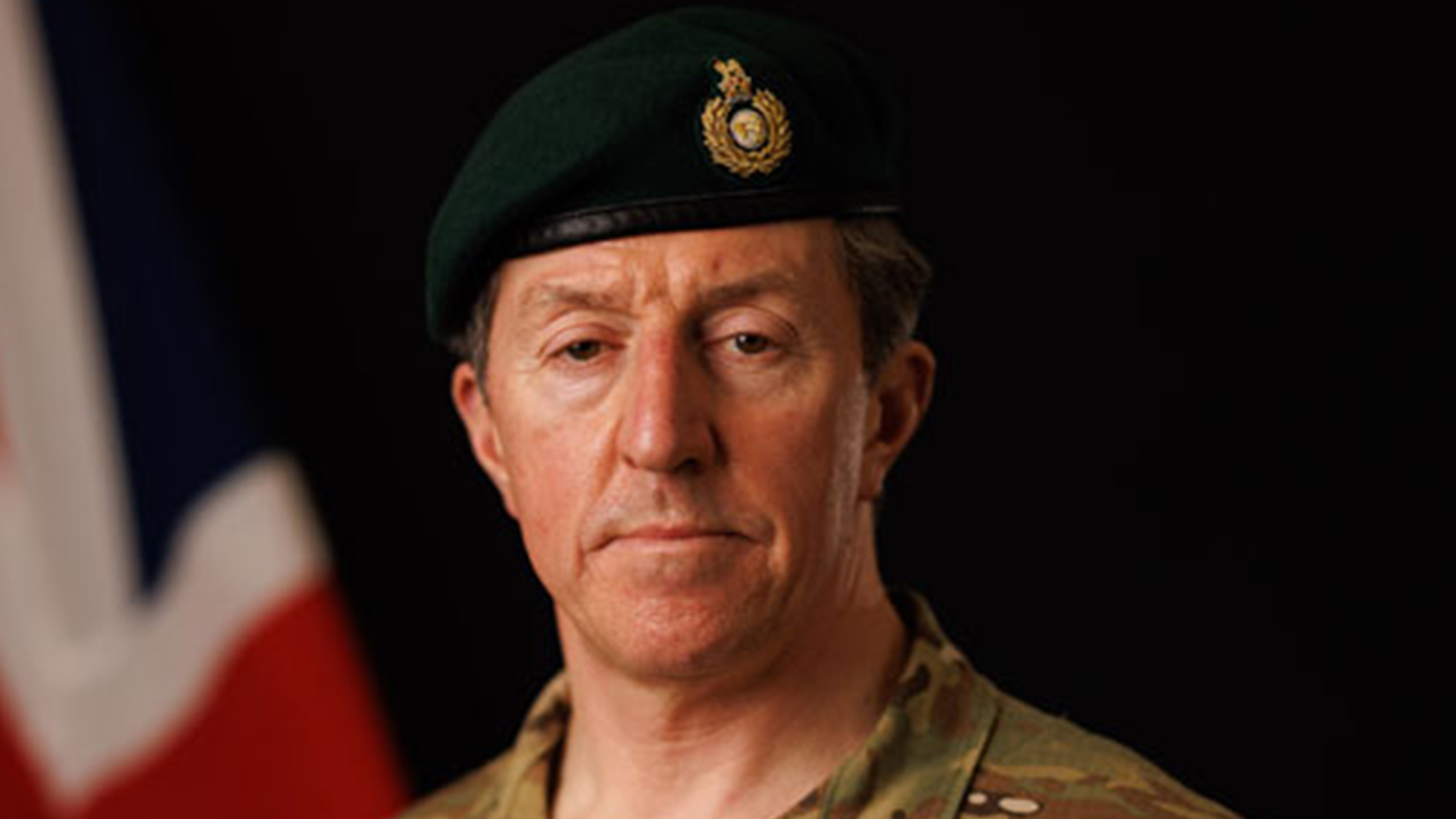
Changing reality
Why would you appoint a non-pilot to head the RAF or Armed Forces, when there are plenty of combat-experienced veterans out there better placed to give the Prime Minister credible advice?
This is a similar argument to the opposition over the appointment of General Sir Gwyn Jenkins to be the new First Sea Lord rather than a serving Admiral – what does a Royal Marine know about naval combat?
There is a changing reality here that needs to be carefully considered.
Firstly, the historical legacy that many former CDS have paradoxically seen relatively little "action" in their careers.
Throughout the later Cold War most of the post-holders from all three services spent much of their career in posts in locations like the Far East or Germany.
They were too late in their career to deploy to Northern Ireland and missed the Falklands and Gulf completely – many of them only had very limited operational experience, but they were still highly experienced individuals able to carry out their job.
Nature of warfare has altered
Paradoxically the campaigns of the last 30 years mean that many more people have deployed, often into highly dangerous situations in Iraq and Afghanistan.
This means that, particularly compared to the Cold War, there is a much higher level of general operational experience than there used to be.
It's worth remembering this when thinking that all prior CDSs were combat veterans.
Another change is that the nature of warfare has altered dramatically – back in the late 1980s when ACM Sir Rich joined the RAF, the UK planned for operations to defend against Russian attack on land, air and sea, as well as with nuclear weapons.
Today, while Russia remains the clear threat we need to defend against, the type of operations is far more varied – the Armed Forces may be involved in responding to cyber attacks, sabotage on infrastructure, working with civil police to tackle the threat of terrorism or operating in space.
No matter what someone's background in the military is, there is no one career pathway that will properly prepare them for leading the Armed Forces through these unprecedented challenges.
Armed Forces will undergo radical change
The reason that ACM Sir Rich is a strong candidate for the job is because he brings a huge amount of experience in the programme and financial management space, as well as senior leadership roles.
As a result of both the Strategic Defence Review and the National Security Strategy, both published in June, the Armed Forces will undergo radical change as they refocus their operations, procurement and long-term industrial support to rebuild stockpiles and deter Russian aggression.
This will require major investment in some areas, particularly rebuilding munitions factories, restoring infrastructure and helping make the military battle-ready to support Nato.
It's going to require much closer coordination with other government departments and industry to make investment choices that will shape the long-term future of the military.
It is also going to need some very difficult decisions about where to pull funding and reduce or scrap capabilities that may no longer be required.
Decision matters in the longer term
In this respect, ACM Sir Rich is an outstanding choice, bringing a deep understanding of the equipment challenges facing all three services, and being able to make the case for the Armed Forces with the Treasury and other parts of Government.
This decision matters in the longer term because it has broken the link between promotion and only appointing officers of certain backgrounds into the most senior jobs.
If you were to tell a new engineer or logistics officer at Dartmouth or Cranwell that their career prospects will be limited, that they won't be able to compete for the most senior jobs and that in turn a wide range of other roles at all rank levels will be closed to them as well, all because they didn't become a Warfare Officer or pilot, this would sound ridiculous, yet this is exactly what has been done for decades.
The path to the top has been closed except to those who made career choices in their late teens that reverberated across the entirety of a 40-year career.
Judging someone in their late 50s on their potential to be the Chief of the Defence Staff simply because decades earlier they'd passed the pilot aptitude test seems an odd way to manage talent!
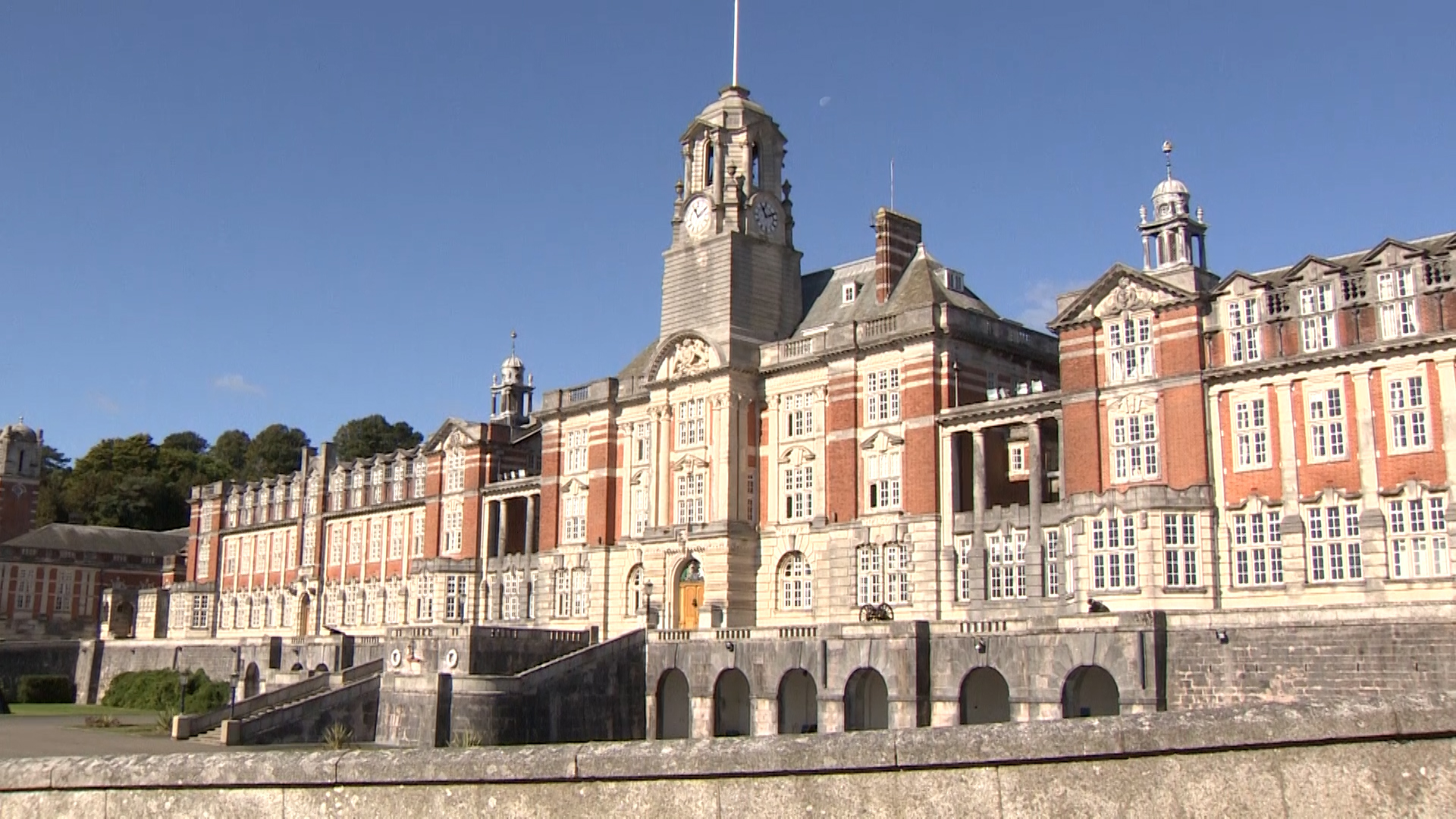
Highest jobs are open to anyone
Hopefully, the message has now been sent that the highest jobs are open to anyone with the potential to make it, rather than only a select few.
Will his lack of pilot's experience mean that ACM Sir Rich cannot meaningfully advise politicians on military matters? Of course not.
The whole point of the military command structure is to create specific posts where senior officers can provide relevant military advice – for example, the Chief of Joint Operations commands the day-to-day deployment of troops around the world.
Were an operation to come up, and if politicians needed briefing on it, there are plenty of specialist senior officers available to provide the right advice.
It's important to remember that while CDS is the most senior military post, it only plays a very small part in daily military operations.
Finally, the post of CDS does not mean that you're expected to be an expert in all military matters.
Perhaps the most serious of the post's roles is to offer direct advice to the Prime Minister on the use of Special Forces and nuclear weapons.
Right person for the job
No prior CDS has served in both Special Forces and on ballistic missile submarines, but they have all proven themselves capable of providing appropriate advice when needed.
Just because you haven't passed Selection or earned your Dolphins does not mean you can't offer advice at the right time. It's about how you use the many highly qualified advisers around you to best effect, not whether you've done the right course that matters.
It's clear that ACM Sir Rich is, without doubt, the right person for the job, with the skills, experience and credibility needed to deliver a modernised military fit to work with Nato partners to defend against the threat of Russian aggression.
It doesn't matter what his prior early career work was, or if he was a pilot or a plumber.
What really matters is how he manages to lead the military, civilian and contractor personnel that make up the MOD in the years ahead.
@PinstripedLine is an esteemed defence and security blogger, providing expert insight and analysis.

